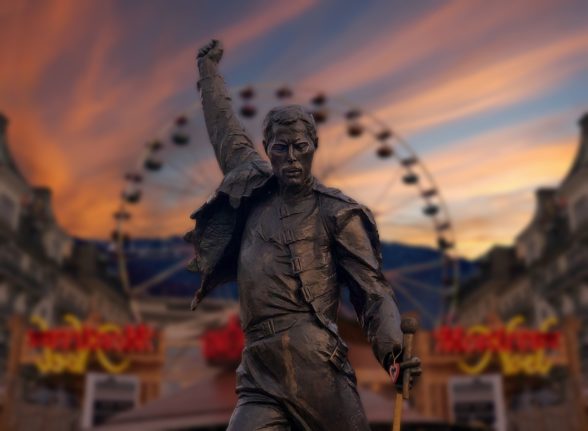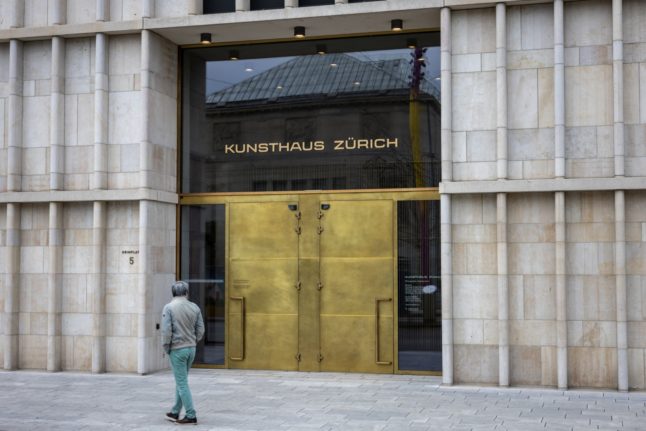Zuger Seefest
The canton of Zug’s largest festival with some 20,000 visitors each year, takes place on Saturday, July 1st.
Though this year’s iconic Zuger Seefest will not feature an air show nor fireworks, visitors will instead be able to enjoy the ZugMAGIC, a magic water show on Lake Zug in addition to the usual programme featuring live music, refreshing drinks, and unique atmosphere.
Nur zu gern hätten wir heute am Zuger SEEfest den Anblick der Sonne über dem Zugersee genossen. 🌅 Als kleinen Trost gibt's heute einen #Throwback zum Sonnenuntergang vom letzen Jahr. 🔙 Hier geht's zum #ZugerSEEfest 2021: https://t.co/FlExQav0sW pic.twitter.com/7BfvXeU5y7
— ZugSPORTS (@zugsports) June 27, 2020
Federal Palace
This year, Switzerland celebrates 175 years since it signed the first modern Swiss constitution in 1848. To commemorate this, visitors will have the unique opportunity to peek behind the curtains of the Swiss Parliament on July 1st and 2nd July for free.
Openair Frauenfeld
Summer is the season for music festivals in Switzerland and the Openair Frauenfeld 2023 promises to deliver a musical act for every hip-hop taste. The festival takes place from Thursday, July 6th, through to Saturday, July 8th, with headliners such as Travis Scott, Kendrick Lamar, Wizkid and Stormzy.
Paradise. #openairfrauenfeld pic.twitter.com/yWc5BUyIEv
— Sojin (@TheSojin) July 8, 2016
Montreux Jazz Festival
Switzerland’s iconic jazz festival returns to Montreux from June 30th through to July 15th with acts such as Seal, Sam Smith, and Juliette Armanet. The programme of the festival’s free stages features more than 400 concerts, DJ sets, and activities.
During the festival, a box office, located at the entrance hall of the Music and Convention Center (2M2C), floor B4, will be open every day from 4 pm until the end of the concerts.
Paléo Festival
While you’re in French-speaking Switzerland, we suggest extending your festival stay for another week as Nyon’s Paléo Festival – the country’s biggest open-air festival – will be well worth your time and money. It takes place from June 30th to July 15th.
Every year, around 250,000 festival goers flock to the six-day music event to rock out to more than 300 concerts across seven stages and browse its 150 stalls and bars.
#paleo @PaleoFestival #concert #musique #paleofestival #photo #drone by #imagineaction studio #festival pic.twitter.com/APvXcH91AI
— iannone nathalie (@iannonenathalie) July 12, 2017
BernPride and EuroGames
Bern’s annual Pride Festival will be held on July 29th, but it is far from the only Pride highlight in Switzerland’s capital city.
If you’re in Bern hoping to wave your rainbow flags even sooner, then we have good news. The city will launch the EuroGames, the largest queer sports event in Europe, from July 26th until July 29th, and you can even take part in the 5K/10K PrideRun – if you can handle the heat, that is.
POLLEN Festival
Sion’s POLLEN Festival takes place on not one, but two summer weekends in front of the Théâtre de Valère. Visitors can head to Sion’s Old Town on July 1st and 2nd, and between July 6th to July 9th to enjoy a diverse programme combining music, performing arts, and visual arts.
Züri Fäscht
Following a three-year break, the Züri Fäscht is back to take over the city in full force. This summer, the festival, which attracts around two million visitors take over the streets along the River Limmat and around the lake basin, will take place from July 7th through to July 9th 2023. The event features the very Swiss Chilbi, a multitude of food stalls, music and fireworks.
#Zurifascht is here!! #fireworks #zurifest #zürifäscht @nytimestravel @BBC_Travel @MySwitzerlandIN @FlySWISS pic.twitter.com/CBDbg5gU2E
— Anupriya D (@AnupriyaDwivedi) July 2, 2016
Sommerfest Iseltwald
Iseltwald is often referred to as the pearl of Lake Brienz, and rightfully so. The fishing village is located on the left bank of the river and is one of the smallest communities in the canton of Bern.
The quaint Swiss village was recently forced to limit the number of tourists after fans of a South Korean Netflix hit show flocked to the region in droves sparking a backlash from locals.
So, if you are among the horde of visitors headed to the village for its annual Sommerfest between July 7th and July 9th, make sure to read our article on the steps you need to take in order to be permitted ‘entry’ to the village:
Swiss village forced to restrict visitor numbers after Netflix success
Swiss National Day
While August 1st marks Switzerland’s National Day, festivities to celebrate the day usually start across Swiss villages, towns, and cities on July 31st. For instance, Basel kicks off its annual Swiss National Day celebrations with a must-visit festival on the Rhine from 5pm on July 31st.
You can find similar events in other cities by browsing MySwitzerland’s events page, or simply checking in with your local municipality for any regional festivities on the day.



 Please whitelist us to continue reading.
Please whitelist us to continue reading.
Member comments